Tags
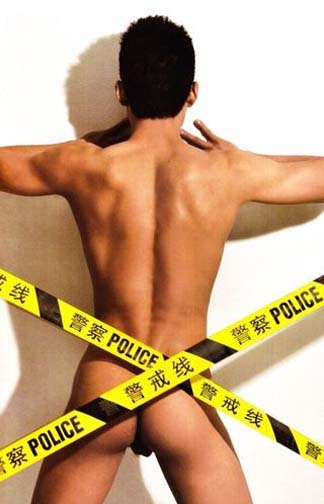
How gay inclusive is Thailand? Sexpats and the United Nations agree that when it comes to social norms, gay rights, and equality, it’s all about being hands off.
It’s good to know that Jabba The Butt is mad as hell and ain’t gonna take it any more ‘cuz the powers-that-be want to turn his beloved cesspool of debauchery by the sea into a family friendly resort destination. Even if all that means is he’ll whine about it to the dozen of readers of his blog. Because in Pattaya gay means commercial sex and nothing dictates how gay Thailand is than farang whose myopic vision only allows for a narrowly focused glimpse of self-delusional reality. In Jabba’s case it’s that there is no good reason for Pattaya to be anything other than the Sin City he’s grown to love. Because the lifestyle of a Pattaya sexpat is a god-given right damnit and no meddling government should even think about putting a stop to the constant flow of hot and cold running moneyboys that are the very life blood of his golden years.
Yawn. It’s Jabba’s typical mouthing off about his version of what being gay in Thailand is all about: prostitution. Which, being a failed pimp, isn’t exactly news. But a far wider reaching opinion on what being gay in Thailand means has just seen the light of the day. A report by the U.S. Agency for International Development (USAID) and the United Nations Development Programme (UNDP) has been released that paints a not-so-rosy picture of gay life in the Kingdom. The joint analysis bills itself as a landmark report and the first comprehensive review and analysis of Thailand’s legal and social environment encompassing in-depth research on LGBT issues in Thailand. And their news ain’t good. But then ‘self-fulfilling prophecy’ immediately comes to mind, and any report that starts off with a two page list of Acronyms never bodes well for anyone other than its authors. But on the plus side, Jabba can now boast that he is just as myopic as a United Nations task force intent on explaining to Thailand what is wrong with it from the superior perspective of outsiders.
While Jabba’s concerns are on naked boys on stage and the freedom to buy them for the night, the USAID/UNDP’s is instead about gay rights and equality, even though those issues are dictated through Western perspectives. The report claims that “while the tourism authority actively promotes Thailand as a gay tourist destination, acceptance of non-traditional sexualities in Thai society is still perceived to be low.” According to the report, Thailand’s gay citizens live in a society where there is strong pressure to be a “good citizen” and put family concerns or interests before their own. This, the report says, is compounded by the notion that one’s sexuality or gender must not go against accepted norms and should not bring shame to oneself or one’s family.
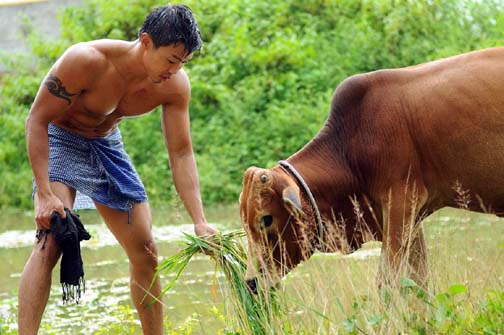
Thailand’s social norms are based in its rural history, much as they are in more fully developed nations in the West.
All of which is true. But in Thai society everyone is supposed to be a ‘good citizen’ and everyone puts family concerns and interests before their own. That’s how a collective society operates. And sexuality is just one of many areas in which Thais are expected to not go against accepted norms, or bring shame to themselves or their family. In fact, that pretty well defines every breath the average Thai takes on a daily basis. And despite what the report insinuates, just because you are gay doesn’t mean you should be let off the hook.
Gay rights, equality, and non-discriminatory laws and legislation are all noble issues, but when you define those values through Western perceptions . . . well, you’ll quickly find that Western values are not as easy to import as is Western pop culture. And when Western nations feel they have the road map to equality for all countries on the earth to follow . . . well, maybe they need to clean up their own act first.
The USAID/UNDP’s report encompasses the findings of the Thailand National LGBT Community Dialogue held in March 2013 in Bangkok, Thailand (along with additional findings from a desk review, additional interviews, and analysis of published literature on LGBT issues in and around Thailand). The National Dialogue was attended by 45 participants, including representatives of LGBT organizations from throughout Thailand, the National Human Rights Commission of Thailand, donor agencies, universities, nongovernmental, human rights institutions, legal aid organizations, and civil society organizations. In other words, organizations that rely on funding by governmental agencies like the USAID/UNDP.
So while the report defines how gay citizens are treated and viewed in Thai society, no effort was made to talk to average Thai citizens, only those whose jobs and organizations deal with gay rights issues provided input. That’s like Jabba asking the moneyboy he just hired to molest what his views on prostitution in Thailand are. Or asking one of his band of merry men if public sex in Sunee Plaza bars should be allowed and/or encouraged.
The USAID/UNDP’s report begins with a brief history of homosexuality and transgender behaviors in Thailand, and says that Thai society in the 19 century was relatively androgynous relating to clothes and hairstyle. However, at this time, colonial Western norms of behavior and thinking started to be adopted including the criminalization of homosexuality and sexuality being considered not a private matter but instead a part of social norms. You’d think that conclusion alone would send up a red flag about the dangers of Western norms being applied to non-Western societies. But that would have made for a very short report.
Next, it provides a summary of problematic areas in law, social customs, religion employment, housing, education, and health and well-being (which for some odd reason focuses on sexual-reassignment surgery). You can read the full report here, but I’ll highlight most of the areas the report singled out for you:
Even though Thailand’s Constitution prohibits discrimination, specific laws that refer to sexual orientation and gender identity do not exist. (As they also do not in the USA)
A proposal to include sexual identities under the anti-discrimination clause of the 2007 constitution
was rejected. (As was the 2007 constitution.)
Existing marriage laws specifically reference men and women, reflecting a traditional interpretation of gender and family structure.(As they still do in the majority of states in the USA.)
Legal and policy reform is seen as difficult both because lawmakers tend to be conservative, and because the constitution and country’s laws are seen as sacred.(Which is also a plank of the US Republican party’s platform, and the gospel truth according to the Tea Party.)
Although there is no overt persecution of LGBT people, Thai society does not wholly accept sexual and gender minorities. Attitudes towards LGBT individuals can be somewhat tolerant as long as LGBT people remain within certain social confines. Hostile attitudes may lurk below the surface of individuals and parts of society that do not express their views openly. (Sounds like America to me.)
There is a lack of understanding about the specific struggles and needs of LGBT people.(Ditto.)
Arguably, the greatest and often most important struggle that a Thai LGBT individual faces is that of religion.(Religious zealots against the rights of gays? Who’d have thought?)
The vast majority of Thais ascribe to Theravada Buddhism. This religion does have negative views of sexual orientation and gender identity that does not conform to social norms, viewing it either as a punishment for sins in past lives, or as a lack of ability to control sexual impulses and tendencies.(Yeah, bit at least they don’t confuse homosexuality with bestiality.)
Due to the gender roles Thais are expected to play in the workplace and in society at large, there were numerous accounts of LGBT people facing discrimination in employment settings. Many LGBT people, if possible, choose to remain closeted to avoid discrimination and stigma at work. For instance, there were multiple reports of LGBT individuals being denied promotions, being fired from their jobs after disclosing their sexual orientation, as well as being asked inappropriate questions during interviews and job screenings. (Welcome to the USA!)
Transgender people who cannot easily hide their identities suffer the most employment discrimination in Thailand, and are often limited to working in roles in hospitality, entertainment, or the sex work industry.(Also the traditional jobs for drag queens back home.)
The lack of relationship recognition also leads to same-sex couples having unequal status to heterosexual couples in areas such as the ability to access social services, spousal insurance and benefits, and joint bank loans.(‘Cuz that’s not al;so the law of the land in the USA)
There are reports of negative portrayals of LGBT people in school textbooks that label homosexuals as deviants. *Which is mandatory in Tennessee’s public schools.)
Sexual-reassignment surgery (SRS) is available in Thailand, with indication that Thailand performs the greatest number of male-to-female (MTF) SRS in the world. However, although MTF SRS is easily accessible in Thailand, female-to-male (FTM) SRS is not as easily accessible and as advanced. It is also more expensive. (Well, FTM SRS requires more plastic. And I’m not sure that indicating that Thailand performs the greatest number of male-to-female SRS in the world counts as a negative.)
In terms of legislation, transgender individuals cannot change their sex on legal documents regardless of whether or not they have undergone SRS.(Nor can they in the U.S. and Facebook won’t even allow them to use their new identities.)
While there is some appearance of acceptance for LGBT persons in Thai society, many face discrimination from family, education, media, legal, government, economic and religious structures, institutions and establishments. (As they never do everywhere else in the world.)
There is a great juxtaposition between how Thailand is portrayed globally as a haven for LGBT tourism and the actual acceptance of LGBT persons within Thailand itself. (Thank the gods we don’ have that problem back in the States!)
Thai media generally portrays LGBT people in a negative way, or as stock characters or comic relief on television shows. (But we award them Emmys for that in the U.S.)
The USAID/UNDP’s report concludes with a list of recommendations that will fix these problems for Thailand, such as The Ministry of Finance ensuring equal access to benefits and compensation for LGBT couples as heterosexual couples, The Ministry of Education protecting the basic rights of all students to equal access to education and protection from discrimination, the State and other relevant institutions to ensure equal access and rights to safe and affordable housing for LGBT individuals. school curriculums to include LGBT issues and awareness, etc., etc. etc, All of which would be great initiatives to recommend be implemented in the US and most other Western countries too.
The USAID/UNDP’s report is a product of a broader initiative entitled ‘Being LGBT in Asia, an initiative launched on Human Rights Day in December 2012 that seeks to promote understanding of the fundamental challenges faced by LGBT people and to document the progress being made in anti-discrimination efforts. It is It is currently being implemented in Cambodia, China, Indonesia, Mongolia, Nepal, the Philippines, and Vietnam too.
Gay rights and promoting equality are certainly valuable issues that need to be supported and addressed, but I can save the USAID/UNDP a lot of time and effort: In all eight of the Asian countries the initiative has singled out you’ll find homophobia and discriminization exists, and laws and societal norms need to be changed to ensure gay citizens are afforded the same rights, protections, and treatment as anyone else. Just like you’ll find in 99.9% of Western countries. As for Thailand, pointing your finger at Gen. Prayuth’s version of a government is probably not a smart move. Affecting change by doing so is as likely to succeed as Jabba The Butt’s demand that Pattaya remains to be the armpit of the world that it is.
| Related Posts You Might Enjoy: | ||

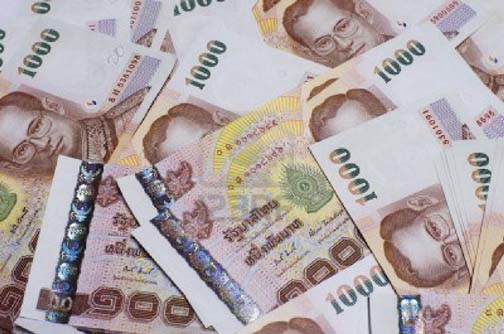

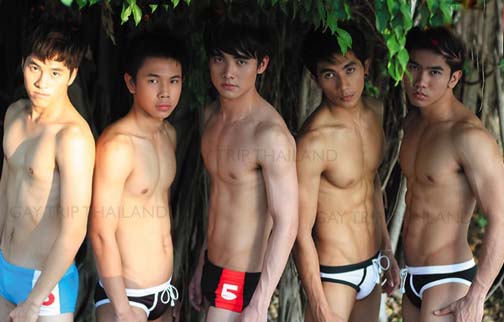
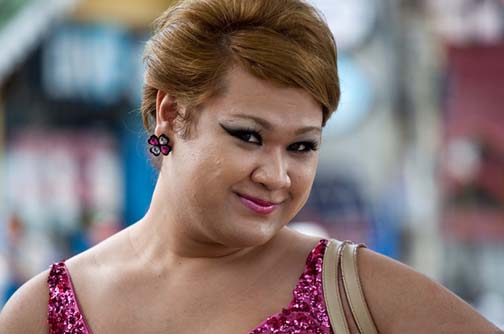
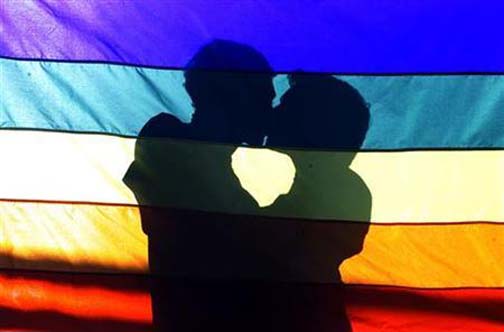

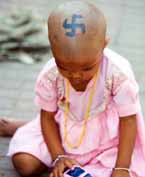

Yes., I agree that Jabba would be terribly upset if Pattaya was cleaned up. Only in an environment like Pattaya can Jabba have any chance to appear Normal. Clean up Pattaya and he would stand out like the pile of …. he is. However, I think you need to get out of Thailand and return to the States or even Europe for that matter. In the last ten years thinks have changed dramatically in the Western World For example, some states like California and Washington for two, do allow name and sexual identity changes on identifications. State after state is voting for or allowing gay marriage. More importantly the public perceptions have changed dramatically with gay acceptance now having a clear majority. I will agree that some things in this report need a closer look, but all in all I find it closer to reality that any delusion of Jabba’s. I do think the “norm” that the UN talks about may be wrong in one sense My experience suggests that the gay silly queen that you see on Thai TV is not only accepted in Thai society but actually encouraged
to the point that it is considered part of the norm. Here, while I hate this characterization, I think the Thais have found a norm they can deal with. The Thais i have met who act this role appear to be not only be accepted, but their company sought out as someone who is fun to be around. Rarely at time, I find I disagree with you, but your condemnation of the UN report and you comparison of Thai LGBT perspectives to the West’s LGBT perspectives may be one of these times.
Eh, I don’t think we are disagreeing by much.
There are states that allow sexual identity changes on identifications, that allow same-sex marriage, that prohibit discrimination in housing and employment based on sexual identity, but many do not and there are no federal laws that do either. Yup, it’s getting better, but we are not there either yet. I don’t believe any countries provide all of those protections (but I could be wrong, there may be a few) and that’s my point in regard to this report – yes Thailand has a long way to go but so do the home countries of those responsible for that report.
As for the silly queens on TV, that was the route too in the U.S. (unfortunately) and is still the version of gay that many ion the country are comfortable with. Look at Ross Mathews – it still is the gay we can laugh at that middle America accepts. On the plus side, the younger generation is much more accepting (and in Thailand too) and as corporations realize this they market toward equality and acceptance which helps steer the rest of the country’s perceptions.
Thanks for your well-thought out comment RW!
(And yeah, Jabba is worried about change ‘cuz if Pattaya got cleaned up he’d have to slink back into the hole he belongs in, which currently is Pattaya.)
Gaybutt actually posted some disparaging words this week about Pattaya / Shitsville. I thought that was against the rules on her blog; however, that rule must only apply to others. Consistently inconsistent, but I guess she “gets it” if it is done by her & “just doesn’t get it” if done by others. On the other hand, her medications might have kicked in if she actually realized that Pattaya / Shitsville falls short of paradise.
I thought Consistently inconsistent was the name of his message board.
Yeah, in real world terms this report is mostly bullshit. It also isn’t at all helpful. I’d daresay that most Thai gays are pretty happy with their standing in society, or more to the point, they don’t even have to think about it and that’s one reason why they’re happy.
The Western malaise of over-thinking and over-regulating every aspect of human existence is – thankfully – still very alien to most Thais. They simply know what is expected from them, and as you’ve pointed out, their “gender identity” doesn’t change these expectations a lot, so they have to do their best to fulfill them regardless.
Damn you Alex!
🙂
Guess you just proved one of my points. Even knowing better I still applied Western perceptions to Thai sensibilities. You’re right, Thai society will work out equality issues; passing Western-style legislation is probably not the best way to deal with the subject. ‘Cuz in Thailand, laws are meant to be ignored. But when society decides something, you’d better get on the boat. Thanks for that reminder!
I know I should know better, but I am writing to ask who this “Jabba the Butt” is. The name makes me smile every time I read it, but probably the smile would vanish when meeting him/her/it. I do know that every time you mention his/her/its name, I can feel waves of vilification wafting through the airwaves. Website???
On the occasion of my first three month visit to Thailand, many years ago, my first and last week were spent in Pattaya. My initial reaction was, “What the hell have I come to?”
I have never been back since, and for all the efforts (doomed from the start) to “clean it up”, nothing would induce me to return.
Jabba The Butt is my nickname for GayButton, aka The Mayor of Sunee Plaza, a message board owner based in Pattaya who pretty well exemplifies everything that is wrong with that town ( the name fits both his looks and demeanor). You can Google his board if need be, but probably will then wish you hadn’t. And my first visit to Pattaya was also for a week and I fled after three days.